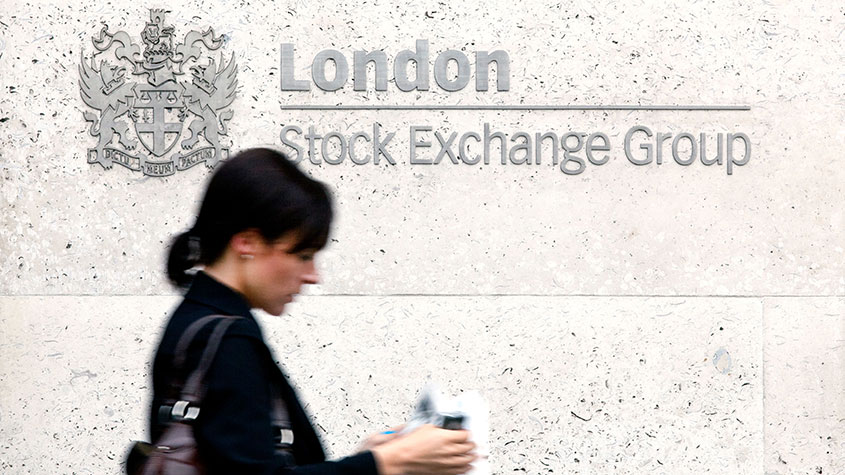Crash? What crash?
October is often said to be a month of stockmarket crashes. But that's not true for this year, says Max King. A host of positive triggers are lining up for equities, says Max King.

In popular folklore, October is the month of stockmarket crashes. That was true in 1987, when markets fell by a third in under a week, and in 1929, when the Wall Street crash marked the onset of the Great Depression.
But Yardeni Research reminds us that that is a myth. Statistically, September is the worst month for stocks and October only the seventh worst since 1950.
October is a turnaround month
Others observe that October is the “bear killer,” marking lows in 1974, 1990, 1998 and 2002. According to the Stock Trader’s Almanac, October turned the tide in 12 post WW2 bear markets.
Try 6 free issues of MoneyWeek today
Get unparalleled financial insight, analysis and expert opinion you can profit from.

Sign up to Money Morning
Don't miss the latest investment and personal finances news, market analysis, plus money-saving tips with our free twice-daily newsletter
Don't miss the latest investment and personal finances news, market analysis, plus money-saving tips with our free twice-daily newsletter
“Mid-term election years usually see major bottoms in the fourth quarter”, it says, “and November is Nasdaq’s best month in mid-term years”. Furthermore, “the six months from November through April have generated an average return of 7.4% in the Dow Jones index versus a 0.6% average gain from May to October.”
The average performance over three, six and twelve months for the S&P 500 following the mid-term elections in the last 80 years has been 7.6%, 14.1% and 14.9%.
Perhaps a better description of October is that it is a turnaround month, bullish when the market has been weak in the year to date, bearish when it has been strong. October marks the month when, for better or worse, investors and analysts start thinking that corporate earnings for the current year are in the bag and next year is becoming visible.
If earnings are rising, the current year price/earnings ratio will drop in January and that can be anticipated in the fourth quarter, but if earnings growth is on the skids, investors realise that they have a year to wait before earnings recover or grow.
That makes the third quarter earnings reporting season, now underway, important. There was a fear that companies would be reducing expectations, perhaps sharply, in the light of the economic uncertainties of 2023 but that has not been the case.
Yardeni says that the reporting season “is off to the weakest start since Q1 2020” but revenues have still been 1.1% ahead of forecasts and earnings have beaten estimates by 5.7%.
Earnings are proving remarkably resilient
Moreover, year-on-year growth is still just about positive while, so far, there have been some notable positive surprises but no shocks, as there were earlier in the year.
Bank of America’s share price has risen 15% due to better-than-expected fixed interest trading resulting in earnings, though down 5% year on year, at the top end of expectations. “Our US consumer clients remained resilient with strong although slower spending levels and maintained elevated bank deposits,” it said.
More remarkably, Netflix, which severely disappointed the market earlier this year with news of rapidly slowing subscriber growth, has seen a remarkably quick turnaround in its fortunes. In the third quarter, it added 2.4 million paying subscribers, 1.4 million ahead of expectations; revenue rose 6% and margins reached 19%. The launch of its cut-price with-ads service is imminent, though that may cause some current subscribers to trade down. The shares jumped 13%.
Those predicting that Tesla will fall flat on its face will have been dismayed by a 56% year on year increase in revenue and an 85% increase in operating profits. We have yet to see whether an advertising slow-down is affecting Meta (Facebook) and Alphabet (Google) and much else besides but so far, so good.
Resilient profits will count for little if bond yields continue to rise but a current ten-year Treasury yield of 4.25% should be close to the top. The Federal Reserve is scheduled to raise interest rates by 0.75% to 3.75%-4% at the start of November and has indicated another 0.5% six weeks later. Growing evidence of an economic slow-down should persuade it to relent either later this year or early next.
A peak in bond yields, moderate valuations (15 times prospective earnings) and earnings that are better than feared should be a positive trigger for equities.
Equities still look attractive
Equities elsewhere on lower valuations look equally attractive; in Europe, the stockmarket has never been a proxy for economic activity, emerging markets have not been plunged into crisis by a soaring dollar and the Japanese market is cheap and has been resilient.
The only concern is the observation of Tan Kai Xian of Gavekal that “there is not enough fear to buy the dip”. Investor sentiment is very bearish, he says, but investors’ allocation to stocks hasn’t fallen as it did at previous turning points. “We are not yet at the point to prompt buying, but we are probably close,” he says.
Though the UK market is undeniably cheap on a single digit multiple of earnings, the economic outlook is deteriorating, gilt yields are still too low (they should be well above comparable US yields) and the chancellor has an almost evangelic obsession with raising already historically high tax levels in a futile attempt, encouraged by the Bank of England, to bail LDI pension schemes out of disaster.
The UK government’s view of the economy seems to follow Ronald Reagan’s dictum “if it moves, tax it. If it keeps moving, regulate it. And if it stops moving, subsidise it.”
A very negative domestic outlook is clouding investors’ perception of the opportunities in the wider world but it shouldn’t. Investor pessimism in the UK has resulted in investment trust discounts, on average, rising from 1.5% to over 15% this year. This offers investors the opportunity to invest internationally on the cheap, with the discount providing a margin of safety if Gavekal is right and it is still a bit early.
Get the latest financial news, insights and expert analysis from our award-winning MoneyWeek team, to help you understand what really matters when it comes to your finances.

Max has an Economics degree from the University of Cambridge and is a chartered accountant. He worked at Investec Asset Management for 12 years, managing multi-asset funds investing in internally and externally managed funds, including investment trusts. This included a fund of investment trusts which grew to £120m+. Max has managed ten investment trusts (winning many awards) and sat on the boards of three trusts – two directorships are still active.
After 39 years in financial services, including 30 as a professional fund manager, Max took semi-retirement in 2017. Max has been a MoneyWeek columnist since 2016 writing about investment funds and more generally on markets online, plus occasional opinion pieces. He also writes for the Investment Trust Handbook each year and has contributed to The Daily Telegraph and other publications. See here for details of current investments held by Max.
-
 Do you face ‘double whammy’ inheritance tax blow? How to lessen the impact
Do you face ‘double whammy’ inheritance tax blow? How to lessen the impactFrozen tax thresholds and pensions falling within the scope of inheritance tax will drag thousands more estates into losing their residence nil-rate band, analysis suggests
-
 Has the market misjudged Relx?
Has the market misjudged Relx?Relx shares fell on fears that AI was about to eat its lunch, but the firm remains well placed to thrive
-
 Is it different this time for Japanese stocks?
Is it different this time for Japanese stocks?Analysis Nikkei 225 Index has jumped 19.8% this year, and there are signs the rally could continue.
-
 As China reopens, why pick an income strategy?
As China reopens, why pick an income strategy?Advertisement Feature Yoojeong Oh, Investment Manager, abrdn Asian Income Fund Limited
-
 Is Japan the best market to invest in now?
Is Japan the best market to invest in now?Opinion Japan puts Western economies to shame and offers good value for both equity and bond investors, says Max King.
-
 The highest yielding S&P 500 Dividend Aristocrats
The highest yielding S&P 500 Dividend AristocratsTips Dividends are a key component of investment returns in the long-term. A portfolio of dividend aristocrats is a great way to build wealth and a sustainable income stream.
-
 2023 will be a bumper year for stocks. Here’s how to play the rally
2023 will be a bumper year for stocks. Here’s how to play the rallyTips Dominic Frisby explains why he thinks the market rally could have further to run in 2023 despite macroeconomic headwinds
-
 China’s post-covid investment boom off to a slow start. Should you still invest in China?
China’s post-covid investment boom off to a slow start. Should you still invest in China?Advice Investors are no longer bullish on the China shop but the gloomy consensus on Beijing’s economy might be unfair. Should you invest in China?
-
 Stock market crash? This time it’s (slightly) different
Stock market crash? This time it’s (slightly) differentOpinion The bears expecting a stock market crash have got it wrong, says Max King.
-
 3 UK shares to buy yielding up to 17%
3 UK shares to buy yielding up to 17%Tips 3 UK shares top stocks to buy now, according to Alex Harvey of Momentum Global Investment Management.
